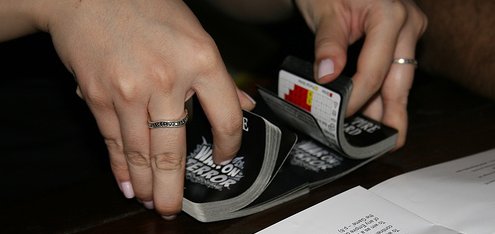Today let’s combine the themes of my last two posts here and talk about the obligation of a spouse to indemnify the other spouse in a divorce from the debts assigned to the spouse.
The indemnity obligation is not one most lay people see as a “debt”. It doesn’t involve paying money to the ex, no statement is sent, the ex probably doesn’t call if the payment is late. If you hand the client a questionnaire, this obligation is unlikely to appear.
Yet the responsibility to pay the ex if the ex has to pay the creditors assigned to your client is surely a debt in bankruptcy parlance.
So the rules governing discharge of debts arising out of a divorce discussed in my post on the bright line for discharge apply here: the obligation to indemnify the spouse is not altered by a Chapter 7 discharge. The debtor can discharge the debt to the third party creditor in 7, but the obligation to make the ex whole if the ex has to pay the discharged debt is unchanged.
Conversely, the indemnity obligation is dischargeable in Chapter 13.
So part of the initial interview must include identifying any recent divorce and getting a copy of the judgment or settlement. The debtor needs to understand the differing consequences of the choice of chapter.








Does this mean that indemnification is automatically required if one ex fails to pay a debt for which the other is liable? Or does it have to be in the divorce decree or agreement?
The bankruptcy case deals with obligations existing under non bankruptcy law. This non dischargeability provision deals with the obligation of the debtor to a spouse, if that obligation was created in the divorce. The bankruptcy case does not automatically create any liability for a debtor.
I would love to see an article from you regarding how to determine when you shouldn’t represent both spouses in a joint filing due to potential conflicts of interest (i.e. when you should recommend that they file separately using different attorneys). Thanks!
I’ve been looking everywhere and can’t seem to find the answer to this: If I purchased things on a joint credit card, and agreed to pay that debt after the divorce is finalized, am I entitled to the things purchased on said card?
I think that’s a matter of family law where you live and the terms of any marital settlement agreement or judgment.
Where I practice, there is no connection between paying the debt and getting the purchases.
Cathy